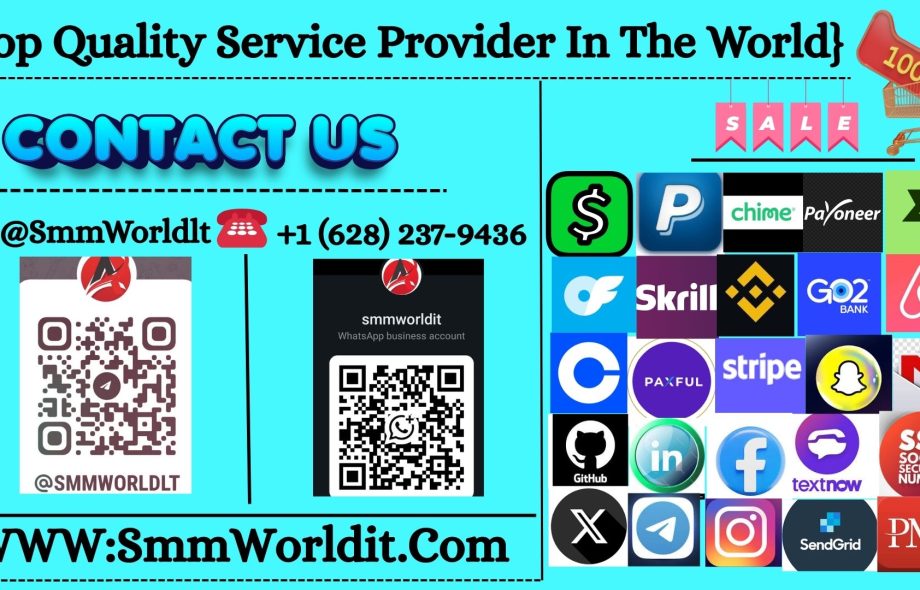Top 6 Sites to Buy GitHub Accounts: Best 2024 Picks (7)
(Contact Us)
Telegram:@SmmWorldlt
WhatsApp:+1 (628) 237-9436
Email:smmworldit@gmail.com
https://smmworldit.com/product/buy-github-accounts/
Buy GitHub Accounts: An In-Depth Exploration
GitHub has become the backbone of modern software development, serving as a global platform for code sharing, collaboration, and version control. With millions of developers and organizations relying on GitHub for hosting repositories, managing projects, and fostering innovation, having a GitHub account is essential in today’s tech world. However, the concept of buying GitHub accounts has emerged as a controversial topic, raising questions about ethics, legality, risks, and motivations. This essay will explore why individuals or entities might seek to buy GitHub accounts, the potential dangers and consequences, and the better alternatives for gaining legitimate access to GitHub’s vast resources.
Understanding GitHub Accounts
Before diving into the notion of buying GitHub accounts, it is important to understand what a GitHub account represents. GitHub accounts are personal or organizational profiles that provide access to repositories, collaborative tools, issue tracking, continuous integration, and many other features. These accounts enable developers to contribute to open-source projects, showcase their portfolios, collaborate with teams, and manage software development workflows.
Creating a GitHub account is free, simple, and open to anyone with an email address. Users can choose to make their repositories public or private and can join or create organizations that host multiple projects. In short, a GitHub account is a gateway to the software development community and the collaborative power of open source.
Why Would Someone Want to Buy GitHub Accounts?
Given that GitHub accounts are easy and free to create, the question arises: why would anyone want to buy one? The motivations behind purchasing GitHub accounts typically include:
1. Access to Established Accounts
Some buyers seek accounts with a long history, many followers, stars, or contributions. Such accounts can be valuable for social proof, credibility, or even marketing purposes. For example, a developer might want to appear more experienced or reputable by using an established account rather than starting from scratch.
2. Bypassing Restrictions
GitHub may impose restrictions on new accounts, such as limits on repository creation or rate limits on API usage. Some users may buy old or verified accounts to bypass these restrictions, gain immediate trust, or avoid verification processes.
3. Evading Bans or Suspensions
In cases where users have been banned or suspended due to violating GitHub’s terms of service, buying a new account may seem like a shortcut to regain access to the platform without addressing the original issues.
4. Automated or Bulk Activities
Some organizations or individuals might buy multiple accounts to carry out bulk operations, such as creating bots, spam campaigns, or manipulating repository statistics like stars and forks.
5. Access to Private Repositories
In rare cases, accounts with access to private repositories might be sold to those seeking unauthorized entry into private projects or proprietary code.
The Ethical and Legal Implications
Buying GitHub accounts is fraught with ethical and legal concerns. GitHub’s Terms of Service clearly prohibit sharing or selling accounts. Engaging in such practices can lead to several issues:
1. Violation of Terms of Service
GitHub’s user agreement mandates that accounts are personal and non-transferable. Buying or selling accounts violates these terms, risking suspension or permanent banning of involved accounts.
2. Security Risks
Purchased accounts may come with hidden security vulnerabilities, such as unauthorized access, malware, or compromised credentials. Buyers risk exposing themselves to hacking or data breaches.
3. Intellectual Property Theft
Using accounts to access private repositories without permission constitutes intellectual property theft, which is illegal and unethical.
4. Misrepresentation
Buying accounts to falsely represent one’s skills, experience, or reputation undermines the integrity of the developer community and can damage professional trust.
5. Legal Consequences
In some jurisdictions, buying or selling digital accounts might lead to legal action, especially if used for fraudulent activities or breach of contract.
The Broader Impact on the Developer Community
Buying and selling accounts risks undermining trust in the developer ecosystem. Open source thrives on transparency, meritocracy, and collaboration. Artificially inflating one’s profile damages these values and can lead to widespread distrust. Platforms like GitHub continuously update security measures to protect the community, and misuse may cause stricter policies affecting all users.
Conclusion
While the idea of buying GitHub accounts might seem tempting for some as a shortcut to reputation, access, or evading restrictions, it is a practice laden with significant ethical, legal, and security risks. GitHub is built on trust, collaboration, and the free exchange of knowledge, and these values are compromised by account trading.
Developers are encouraged to build their presence authentically through contributions, learning, and community engagement. The long-term benefits of genuine involvement far outweigh the short-term gains of purchased accounts. As the software development landscape continues to evolve, maintaining integrity and respect for platform rules ensures a healthy, vibrant, and innovative ecosystem for all.


 :
: